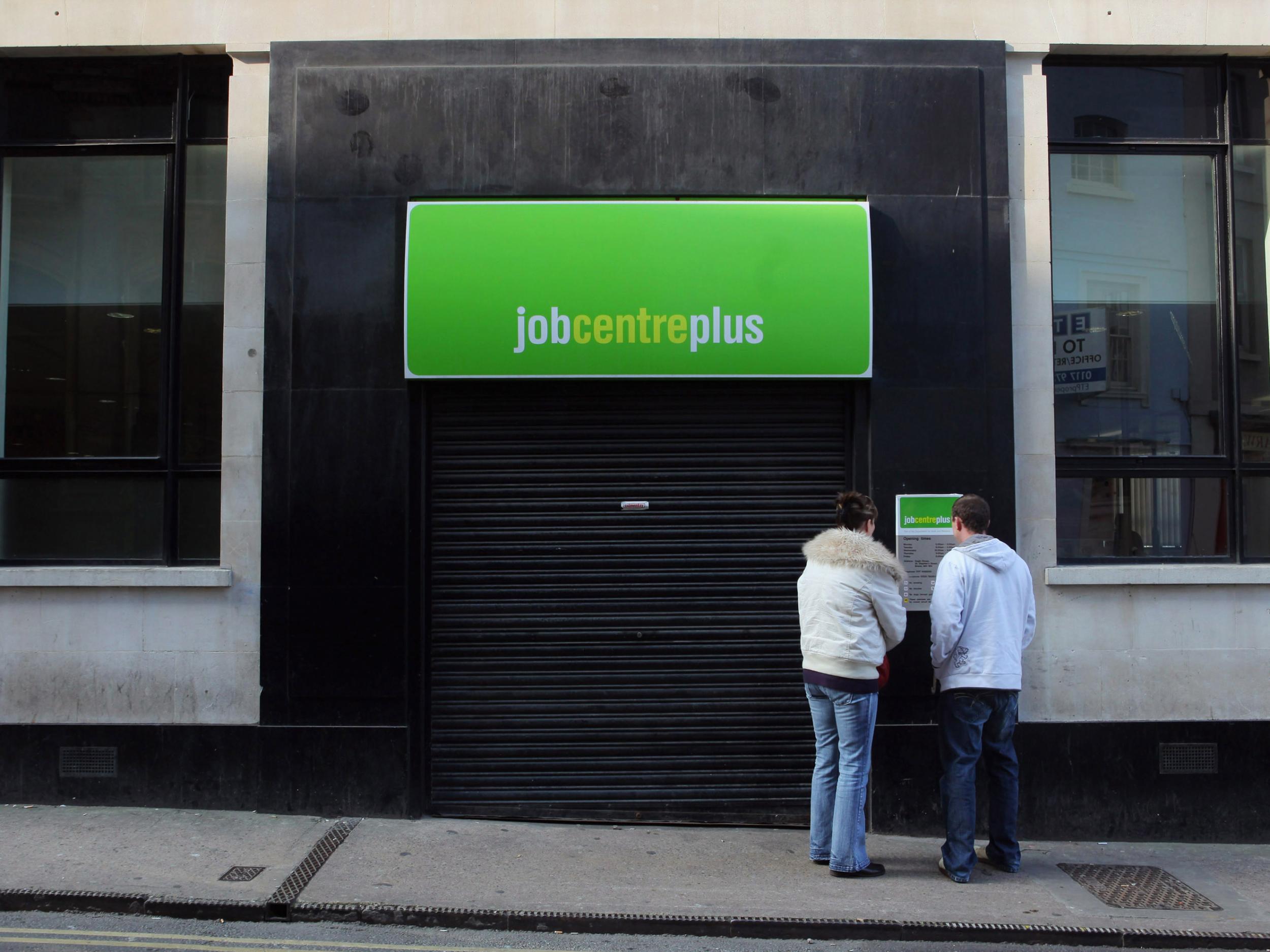Unemployment rises as working age Britons pay the wages of Brexit
Wage growth picked up a bit but it still lags behind inflation as the national pay packet gets ever smaller in real terms in Britain's struggling economy

Your support helps us to tell the story
From reproductive rights to climate change to Big Tech, The Independent is on the ground when the story is developing. Whether it's investigating the financials of Elon Musk's pro-Trump PAC or producing our latest documentary, 'The A Word', which shines a light on the American women fighting for reproductive rights, we know how important it is to parse out the facts from the messaging.
At such a critical moment in US history, we need reporters on the ground. Your donation allows us to keep sending journalists to speak to both sides of the story.
The Independent is trusted by Americans across the entire political spectrum. And unlike many other quality news outlets, we choose not to lock Americans out of our reporting and analysis with paywalls. We believe quality journalism should be available to everyone, paid for by those who can afford it.
Your support makes all the difference.Working Britons are paying the wages of Brexit, and the price is a high one.
The latest official figures on employment and wages showed that while pay growth is picking up, it still continues to lag behind inflation.
For ten months now, Britons have been getting poorer as the economy struggles along in the slow lane. This, remember, at a time of near full employment. But wait, what’s this?
Unemployment unexpectedly rose during the final three months of last year, the first such increase in two years. If wage growth continues to undershoot inflation in a tight labour market what happens when it starts to get looser?
“Britain needs a pay rise,” has long been the cry of the TUC, and justifiably so. But if employers can get workers without the need to give them one then they’ll do so. The chances of the nation getting what it needs will be diminished.
Now, it is worth noting that while the rate of unemployment increased to 4.4 per cent for the three months to the end of December (from 4.3 per cent) so too did the number of people in work, by some 88,000.
Simon French, from stockbroker Panmure, pointed out that the underlying data on labour demand “was relatively strong” with a further increase in vacancies, to an all time high, together and a welcome decline in involuntary part-time working.
The rise in unemployment when vacancies are also rising could be explained by employers struggling to find the right people with the right skills to fill them, a problem caused by the ever present skills gap that the Government has failed to close.
But while Mr French was not alone in striking a relatively optimistic tone in response to the data, it is significant that the ONS raised the question of whether the welcome run of falling joblessness has come to an end.
Stephen Clarke, senior economic analyst at the Resolution Foundation, also wondered whether we might be seeing “a plateauing in employment growth”.
If we are, his hopes that the pick up in wage growth may soon finally see the national pay packet rising above inflation could easily be dashed.
Which brings us back to Brexit, which is what has smashed Britain’s economy in the guts, transforming it from the fastest growing in the OECD to the slowest.
It has been stated before that economic forecasts, the regular flow of economic numbers, the twittering of economists about GDP; they don’t really resonate with the public at large.
What does is their own personal prosperity and their own job prospects.
The former is declining for a majority of working age Britons. That will be made clear to them every time they shop.
They will not thank a Government that bears the responsibility for a pain that looks poised to increase as as it kowtows to the ideological extremists in its midst.
They will be even more inclined to kick back if these numbers do indicate that the salad days of near full employment are coming to a end.
Join our commenting forum
Join thought-provoking conversations, follow other Independent readers and see their replies
Comments